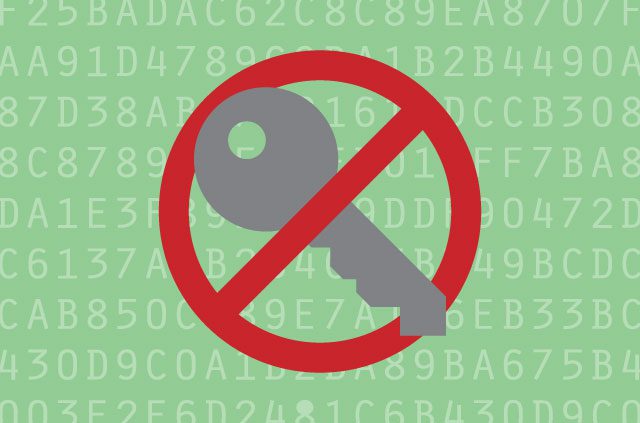EARN IT Act: U.S. might permanently ban end-to-end encryption


The Eliminating Abusive and Rampant Neglect of Interactive Technologies (EARN IT) bill was introduced into the U.S. Senate by Republican Senator Lindsey Graham and Democratic Senator Richard Blumenthal in March.
The bipartisan legislation argues that tech companies need to do more to control the flow of illegal content on their platforms. It proposes that companies like Facebook, Twitter, and Google follow a set of “best practices” in order to not be held liable for the material published by their users.
But that’s where the complications start. These best practices wouldn’t be just recommendations. Part of the EARN IT bill gives the commission sweeping powers to dictate that its practices be adhered to; any violations would be treated as falling afoul of the law and have widespread ramifications.
[Get the latest news in security and technology. Sign up for the ExpressVPN blog newsletter.]
Free speech under threat
Section 230 of the Communications Decency Act, passed into law in 1996, has had far-reaching consequences for the promotion of free speech on the internet.
The section says “no provider or user of an interactive computer service shall be treated as the publisher or speaker of any information provided by another information content provider.”
In other words, while we can assail Facebook and Twitter for hosting fake news websites or providing a platform for hate speech, the companies cannot be held legally responsible for such actions. Basically any online platform that publishes third-party content (for instance, Medium, WhatsApp, Reddit, and 9Gag) is protected under the tenets of Section 230.
Senators Graham and Blumenthal, among many others, want this exemption to end. Backed by the U.S. Attorney General William Barr, who has repeatedly asked tech companies to build encryption backdoors and provide user data to law enforcement authorities, the EARN IT bill will only give compliant platforms legal immunity. Those platforms that don’t comply with the “best practices” might be stripped of their protections under Section 230 and face legal action.
Encryption is the target
The bill cleverly sidesteps any mention of encryption or backdoors for that matter. In fact, Senator Blumenthal went out of his way to explicitly point this out, saying that the bill does not talk about encryption and that is not its aim.
But experts agree that the only way to effectively monitor such platforms is to either do away with encryption entirely, or create backdoors for the companies to screen messages and uploads.
The proposed 19-person committee is overwhelmingly dominated by representatives from law enforcement agencies and nonprofits like the National Center for Missing and Exploited Children (NCMEC). What’s more, the attorney general reserves the right to accept or reject any of the committee’s recommendations, thereby guaranteeing a bill aligned with his interests.
According to John Shehan, vice president of NCMEC, all online services including communication apps should be forced to screen messages for material that’s considered abusive. What’s more, he says all screening technology should be pre-vetted by law enforcement. Platforms should report what they find immediately to both NCMEC and law enforcement; a failure to do so should have legal repercussions.
Read my full statement on the disastrous EARN IT Act, which will give Bill Barr and Donald Trump more control over the internet: pic.twitter.com/LF9WF2F5dV
— Ron Wyden (@RonWyden) March 5, 2020
The backlash has started
Most tech companies have taken a wait-and-watch approach to the EARN IT bill so far, with the likes of Facebook and Google cautioning against a rushed decision and espousing the benefits of encryption.
However, encrypted messaging app Signal issued a strongly worded statement on its blog against the EARN IT bill, saying that it might be forced to pack up and exit the U.S. if it goes through.
Signal wrote: “Some large tech behemoths could hypothetically shoulder the enormous financial burden of handling hundreds of new lawsuits if they suddenly became responsible for the random things their users say, but it would not be possible for a small nonprofit like Signal to continue to operate within the United States. Tech companies and organizations may be forced to relocate, and new startups may choose to begin in other countries instead.”
Signal maintains that end-to-end encryption is fundamental to the safety, security, and privacy of conversations worldwide, that it is an app recommended by the U.S. military, and frequently used by senators and their staff. It reaffirms that it would not be able to operate in an environment where encryption wasn’t guaranteed.
As of right now, there hasn’t been any voting on EARN IT. But the bipartisan nature of the bill means it will likely find strong support. And with much of the country currently preoccupied by Covid-19, it’s possible that the bill is bulldozed through both houses without adequate time for public discourse and debate.
Let’s be very clear on this: The world would be a fundamentally less free and less secure space without encryption.
Take the first step to protect yourself online. Try ExpressVPN risk-free.
Get ExpressVPN




Comments
Just like piracy as in its younger days it was centralized,then it became decentralized ,it wont go away as long as greed and corruption exists ,big tech companies are hard to bring into line already this will send them off shore to the same hide outs as tax havens.Companies big & small will operate only now the game will change .Politicians have alot to answer for.
A world without FREE SPEECH and without the right of COMMUNICATING FREELY PRIVATELY is a WORLDD WITHOUT FREEDOM! The US Constitution is on the SIDE of those who PROTECT PRIVACY and FREEDOM, not on the side of COMMUNIST polititians, who want to HELP the NWO to SLAVE SOCIETY! This SHALL NOT PREVAIL!
Da
I DECIDED to leave FACEBOOK after a few weeks. I had BECOME more interested in Facebook from May to December 2018. I realize you as a business owner MIGHT generate income from users that patronize your LOCAL businesses YET the clientele tends to SPEND more time discussing religions & POLITICS. Bashing TRUMP seems to 🐝 be the NORM. I GROW WEARY of these NEGATIVE discussions. I lived in California for approximately six DECADES. It was BAD when the CLINTONS were in OFFICE but when the OBAMAS were in the OVAL OFFICE... I felt as if I had to walk on eggshells in California. I recall many folks I had met wanted America 🇺🇸 to have our first black president thus their votes. I'd ask the same people if we should vote for a woman next election. By all MEANS; so if we SIMPLY vote a person into OFFICE based solely on color of pigmentation as in skin shades... 😎... Gender as in female or male; or TRANSGENDERS, homosexuality... WHATEVER... I GUESS you can see WHY I had to leave FACEBOOK.
This fight will be between the Government and big Companies like Twitter, Facebook & Google. The public no longer have representatives that work for the people. Freedom of speech has eroded away over the last 30 years. Every group wants something ban that leads to openings in the laws and allows even more bigger holes. We're being attacked on many fronts like this as a "private" citizen.
Technology is not the problem - it never was. It is the people who wield control over that technology that are the real danger. It is the Governments and the powerful Economic & Technology companies worldwide who will have strong encryption - not the citizens. The first law of Government is: Retain power, the second law is: Exercise control over the population. The world has become too complicated, interconected and overcrowded for the average individual to have an effective and significant voice. Welcome to the future.
No matter your elected party they are running rampant without any concern to you and your rights. The fact that this bill faces little opposition is scary and makes me sad. As you can see I cannot say the words Angry, Mad, outraged, take action, .....seriously I am starting to become paranoid of my word usage knowing that I can only cause trouble for myself. We've reached a point where it is not just a fringe element that thinks they know better than their constituency, and not only a party that feels they know better and can act without regard to its consituency, but ALL POLITICAL PARTIES feel they can act without regard to its consituents and we have officially stomped on the very beauty that our formerly great country was formed out of. They wouldnt face this issue if they would have enforced the Anti Trust Laws that are already on the books. Oooops. Shouldnt have ought to have allowed one company to control our communication end to end through M&A activity that was obvious to a 10 year old. . So instead of fixing that lets eliminate the free speech of the people. I dont want to have to face those lobbyists again as they may take away my fu**** Jelly of the month membership and my entitled wife or husband will leave me" HEY: All you currently in our federal government...if you are old as fuck and have served more than you should get the f*** out. Look at our president. My dad who is a stroke victim is more able and competent. If you run for president a bunch of times and fail move on. Even the MLB Hall of Fame has limits to eligibility. Go age somewhere else.